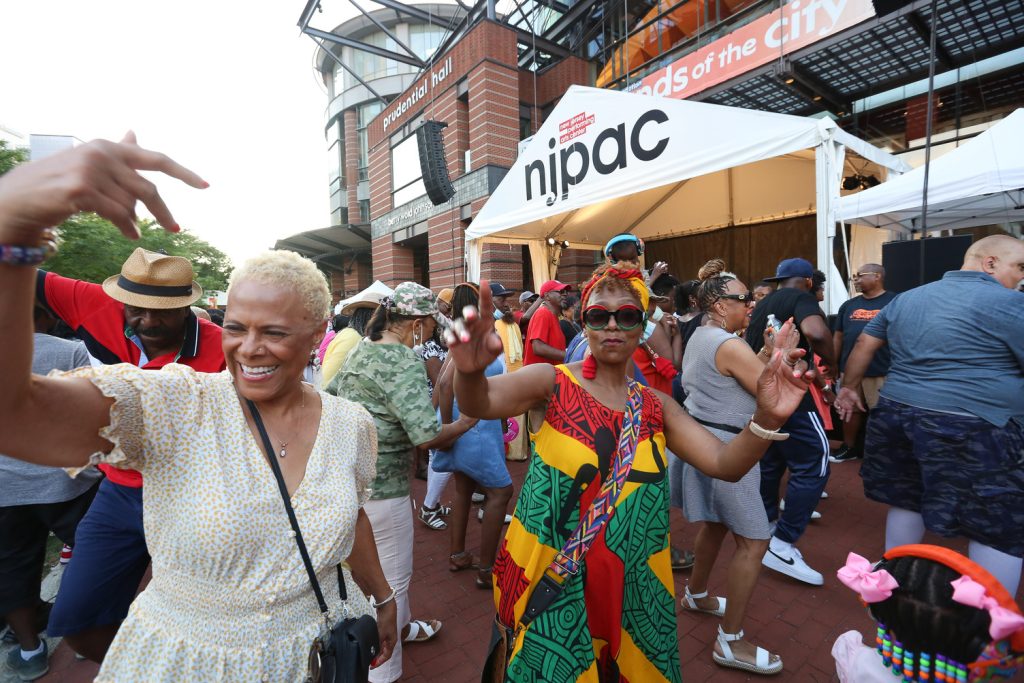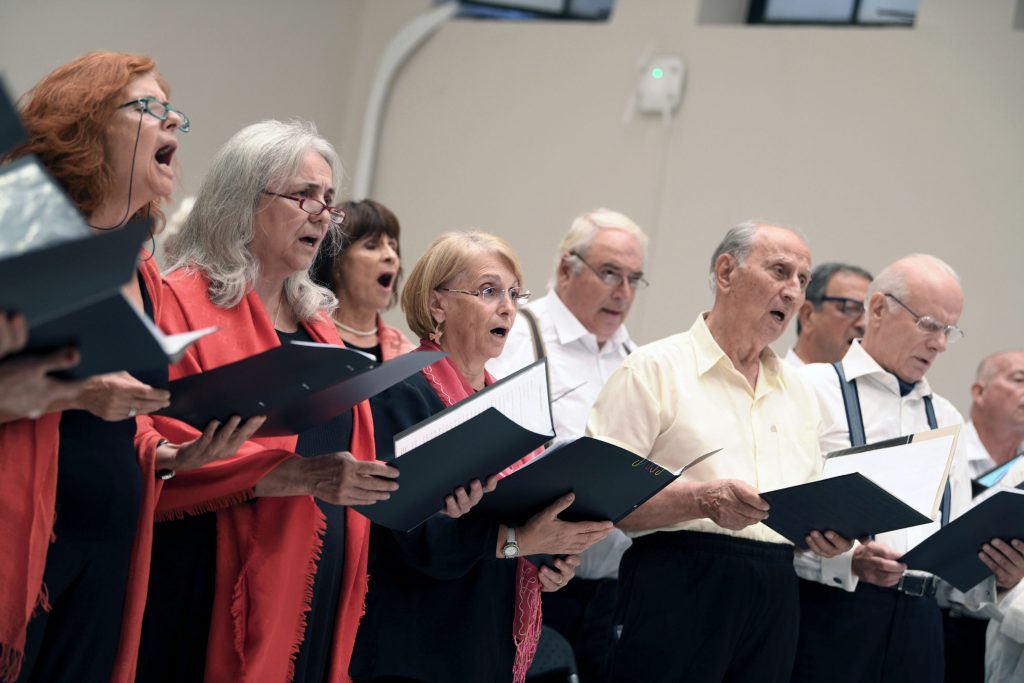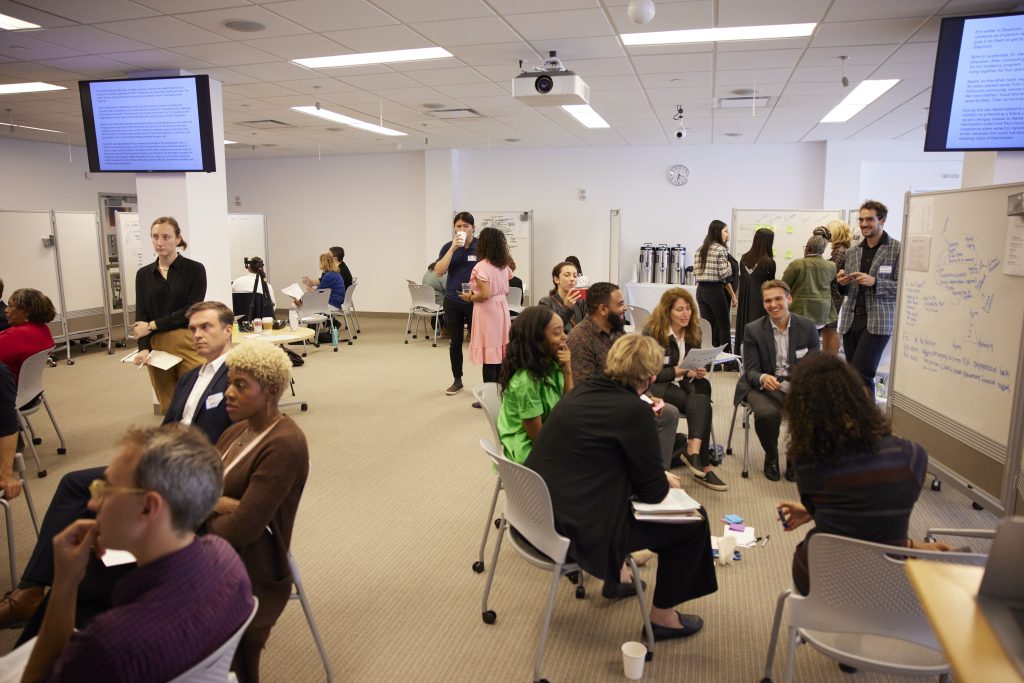
By David Andersson, Arts Team, Bloomberg Philanthropies
At Bloomberg Philanthropies, we believe in the power of arts and culture to inspire creativity and spark collaboration, and support programs that enrich lives and bring people together.
Someday soon, in addition to prescribing medication or therapy, doctors may begin directing patients to visit a museum or join a choir.
The growing practice of “social prescribing” is a way for healthcare providers to address patients’ health and wellbeing by connecting them to a range of nonclinical services, often taking the form of community arts and cultural activities. As our understanding of the many social factors that determine an individual’s health grows, advocates of social prescribing want to use the arts to prevent or address health concerns and to expand healthcare from within the walls of a hospital out into the communities.
Attention on the healing power of the arts grew during the COVID-19 pandemic, when social isolation was at an all-time high. A UK study found that during lockdown in 2020, individuals who spent 30 minutes per day on arts activities had lower rates of depression and anxiety, as well as greater life satisfaction. The first social prescribing pilots in the United States are kicking off on the heels of research demonstrating the long-term health benefits of arts engagement.
Building an evidence base
There have been longstanding programs across the United States with aims to reduce obesity through dance, or to combat mental illness through drama therapy, or the like. And studies have shown a variety of social benefits with the availability of arts activities in otherwise under-resourced neighborhoods. But in order to cement arts as a core tenet of healthcare provision, advocates have called for a more robust and targeted evidence base.
For the past two years, Bloomberg Philanthropies has supported the EpiArts Lab, a National Endowment for the Arts Research Lab based at the University of Florida’s Center for Arts in Medicine in partnership with Dr. Daisy Fancourt at University College London. Modeled after a similar body of research in the UK, the EpiArts Lab has analyzed longitudinal datasets that follow thousands of demographically representative U.S. residents over several decades to understand whether arts engagement has long-term benefits for public health.
The EpiArts Lab has produced over a dozen papers uncovering impacts of arts activities on health indicators in various populations, with compelling findings such as:
- Adolescents who regularly engage in arts activities have lower odds of behavioral problems, criminalized behaviors, and substance use and higher odds of maintaining strong social support networks.
- Creatively engaged older adults have 20% lower odds of depression and are more likely to have better memory, life satisfaction, and overall aging experiences. One particularly striking study found that older adults with frequent cultural engagement are less likely to use inpatient healthcare or nursing home stays, but more likely to use preventative care that ultimately leads to better health outcomes and longer lives.
- In a study of people experiencing chronic pain, doing monthly arts activities is associated with better physical wellbeing, specifically less difficulty with everyday activities like bathing or eating as well as technical activities like using the phone or taking medication.
Social prescribing around the world
Several countries have begun piloting social prescribing in various forms, customized for the local context and healthcare structure.
In Brussels’ Museums on Prescription pilot, psychiatrists in one of the city’s largest hospitals prescribe visits to cultural institutions as part of treatment plans for patients suffering from depression, stress, and anxiety. And in Singapore, after the success of the public hospital system’s social prescribing pilot that offered patients all sorts of social activities, the culture-focused Arts for Healing Programme launched in 2021 connecting patients with offerings at local music schools and community gardens.

At a national scale, the UK Department of Health and Social Care invested in Arts on Prescription, which provides funding and a structure through which care providers across the country refer patients to local arts and social engagement activities. The program was initiated based on the University College of London study on which the EpiArts Lab is modeled, which found that arts engagement is associated with better mental health, lower risk of depression, enhanced health behaviors, reduced loneliness, and reduced engagement in adverse health behaviors.
This study catalyzed the World Health Organization to release a 2019 evidence report cataloguing arts and health research to date, and later a toolkit for how communities around the world can test out their own social prescribing pilots. In an effort to expand our cross-cultural understanding of the health impacts of arts and cultural engagement, upcoming EpiArts Lab studies will broaden their research scope to compare impacts in the U.S. to countries in Asia and Europe.
Designing a U.S. model
So, what could social prescribing look like in the U.S. healthcare system?
The newly formed advocacy group Social Prescribing USA aims to make social prescribing available to every American by 2035. To achieve this, experts in the arts, healthcare, and public policy fields have been grappling with how to design a scalable model that takes into account cultural differences of various communities, considering the needs and objectives of the various stakeholders, including patients, healthcare providers, and insurance companies.

The “arts on prescription” model offers a promising approach to advancing health equity by promoting the incorporation of accessible, community-based resources into healthcare systems, with an emphasis on bolstering the wellbeing of marginalized populations.
Several U.S. cities and institutions have already begun their own smaller scale pilots. The Massachusetts Cultural Council piloted the country’s first social prescribing initiative, CultureRx, which offers annual grants to cultural organizations to develop sustained partnerships with healthcare providers across the state to provide prescribed services, which may range from one-time visits to regularly scheduled classes. In a unique partnership between an arts institution and insurance company, the New Jersey Performing Arts Center and Horizon Blue Cross Blue Shield partnered on an Arts & Wellbeing Initiative, providing arts on prescription to Horizon’s members as one element of the health insurer’s effort to comprehensively address social determinants of health. A recently released Arts on Prescription Field Guide offers a roadmap for U.S. communities to develop their own arts on prescription programs.
In their next phase of research, the EpiArts Lab is conducting an implementation science study of trial programs around the country. Supported by Bloomberg Philanthropies, the two-year study aims to understand more about exactly how the general public engages with social prescribing practices in the US context, aiming to guide social prescribing across a broad range of American health system structures.
Step by step, healthcare systems from around the world are acknowledging that arts engagement can actively support a person’s health. By centering inclusivity, these programs can improve wellbeing not only for those with private health insurance but also for communities with lesser access. In coming years, the hope is that people everywhere will be expressing themselves creatively, on doctor’s orders.
To hear more about the subject, tune in to the Follow the Data podcast for our recent episode: Can the Arts Keep You Healthy?